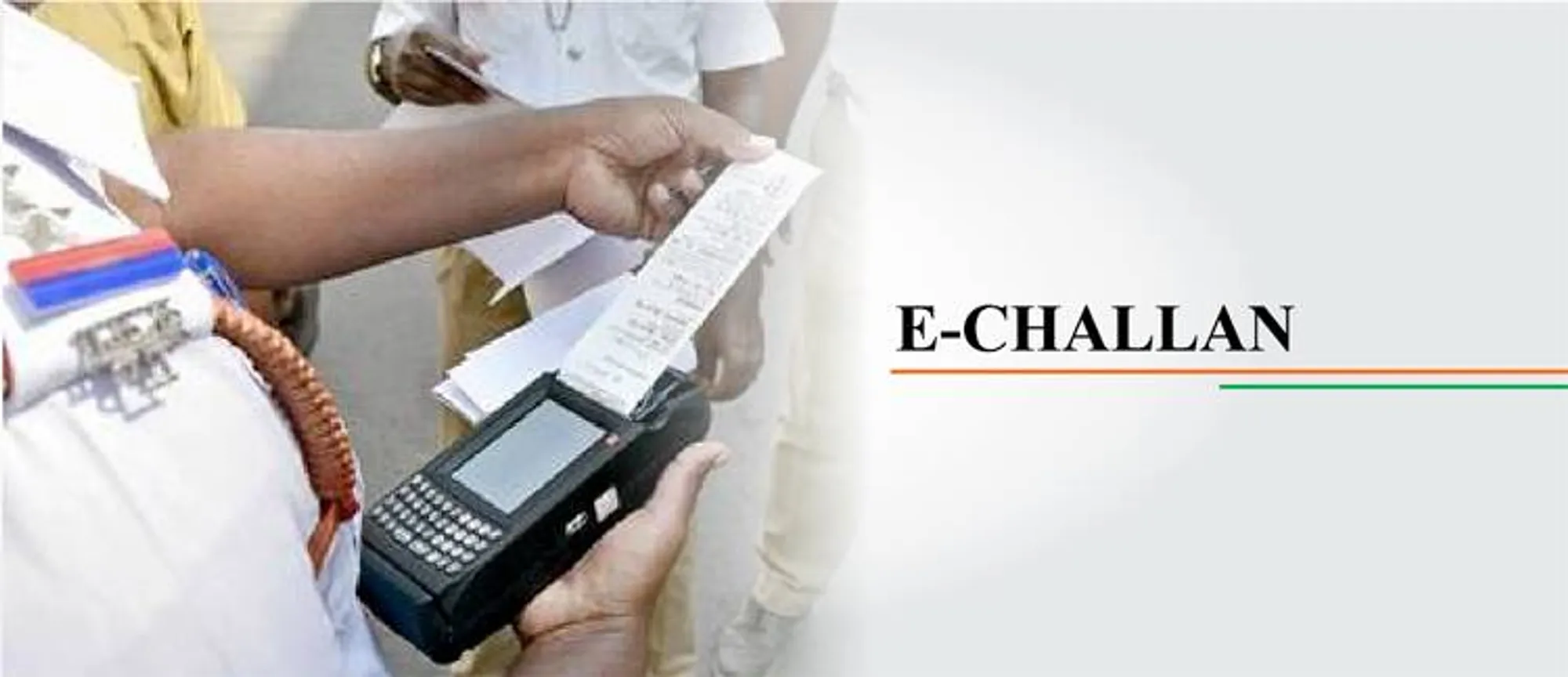The Internet has over the years grown to be the backbone of the government. For good governance, the government has tried to shed off the shell of traditional political models as well as a pen-paper mechanism and has introduced e-voting, e-banking, e- visa, e-wallet, e- return, e-school, e-courts, e-gazette and also e- challan. This is done with the view to increase people’s participation, technological innovation, government efficiency and transparency, and to reduce the costs and save the time.
The word ‘Challan’ is used in India to denote ‘receipt for payment or delivery’. In order to give effect to a plethora of traffic rules contained in Rules of the Road Regulations, 1989 and Motor Vehicle Act, 1988, e-challan was brought into the picture by Union Ministry of Road Transport and Highways. Challan is issued by the traffic police officials for violation of traffic rules, to illustrate a few, driving without fastening a seat belt, driving the bike or other two-wheelers without wearing a helmet, driving when physically or mentally unfit, jumping the signal, negligent or rash driving, over-speeding, driving without a valid driving license, etc. With the help of this new mechanism, the traffic violators are recorded in CCTV cameras and the Traffic Police and Transport Enforcement Wing sends an SMS providing the details of the violation along with date, time and location which is traced through GPS. Photo evidence is also sent to the lawbreaker who is expected to pay the penalty by way of cash or through credit or debit card, net banking, paytm, etc.
This system is introduced to ensure systematic traffic and also a safe drive which the meager traffic police force failed to because of their disproportionate number with respect to the number of vehicles. In addition to this, it also helps to identify the repeated offenders and also the stolen vehicles. In case, the vehicle is driven by the servant/driver or service mechanic, the challan is still to be issued in the name of the owner.
Though a lot of money is spent on this project, its results are not up to the mark. Many of the offenders do not pay heed to these challans. Also, its effectiveness is called into question when comes the government-owned vehicles.

